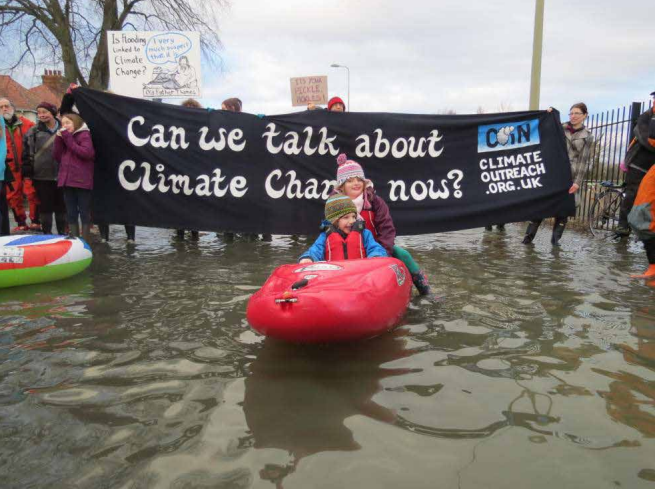Learning from Boiled Frog syndrome
Climate psychologists tell us that humans aren’t good at dealing with complex, diffuse threats whose timing is uncertain. It seems we’d be great at handling a woolly mammoth attack, and our evolution is way behind reality.
If you compare the latest five years to the previous five, what do you notice? The frequency and severity of disruptions is increasing on many fronts: floods, hurricanes, droughts, crop failures, food shortages, power cuts, energy prices. The shape and timing of future threats may still be unclear, but the risk of an emergency affecting you or me is rising fast, and is pretty high.
However, it’s clear that our ability to prepare for emergencies is poor, at any scale from households through communities to local and national governments. For example, the UK and other governments were warned around 2018 of a high risk of pandemics in the near future, and were given budgets for precautionary measures.

I’ve found it hard to talk about emergency resilience with friends and neighbours, for fear that I sound cranky and alarmist. Yet it’s just those kind of conversations that can help people accept this as a new normal they need to engage with. What might help this is to draw on official sources…
The UK National Risk Register is a 140-page Government document, which gives a detailed assessment of risks of all kinds, rated by probability (within the next two years) and impact. They give quite high probability (5 to 125 in 500) to several climate-related hazards, such as storms and heatwaves, as well as industrial action, ‘commercial failures’ and environmental disasters overseas. Surprisingly, food shortages don’t feature on their hazard list, but could arise from several of the risks which do. You can see their overview here (on pages 15 and 16).
This document has a useful section with basic advice on preparedness measures for individuals and communities, which starts on page 21). One valuable step is to know about the Community Risk Register and Local Resilience Forum for your area, accessible via the link above.
Food shortages are a major risk, first because we import so much, and are affected by extreme weather across the world, but also because food supplies are very vulnerable to conflicts like Ukraine, and to fuel shortages and industrial disputes. Professor Tim Lang, the best expert I know on the UK food sector, believes a food emergency is now likely in the UK and more widely within the next few years: meaning major, prolonged food shortages and extreme price inflation. To see my blog on the food emergency issue, click here. The other significant hazards concerning me are disruption to internet and mobile phone networks. This could arise from cyber attacks (e.g. by Russia), or more exotic factors like solar flares.
I support the Government advice to keep some basic supplies at home. They recommend bottled water, torch, and a wind-up radio to get updates during a power cut. I’d add some food stocks, and an independent heating source for one room. I also agree with their view that community responses and volunteer help will be crucial. So it’s worth knowing what networks local to you would be involved with emergencies, how you might contribute, and how to contact them if you’re in need. Some people I know are laying in more extensive food stocks which would last a few weeks, and they may be right.
If you already know about Boiled Frog Syndrome, you’ll grasp its relevance here. We can see that most people find the climate crisis too alarming and overwhelming to engage with, and sadly the same is probably true of emergency resilience. My hope is that at least a minority of people within many local communities will understand the risks, will realise that public services alone won’t cope with many of them, and will start to organise more volunteer capacity, supplies and equipment. All this has got me keen to encourage the emergence of local adaptive networks, see my blog here.
I was exploring this topic recently in an online meeting of Dorset Climate Action Network, and was encouraged to hear of a small village in East Dorset which is installing a generator for their village hall as a support centre for emergencies. This kind of tangible precedent helps a lot, and doubtless there are many already: if you know of others, please tell me if there’s a website which shares them.
